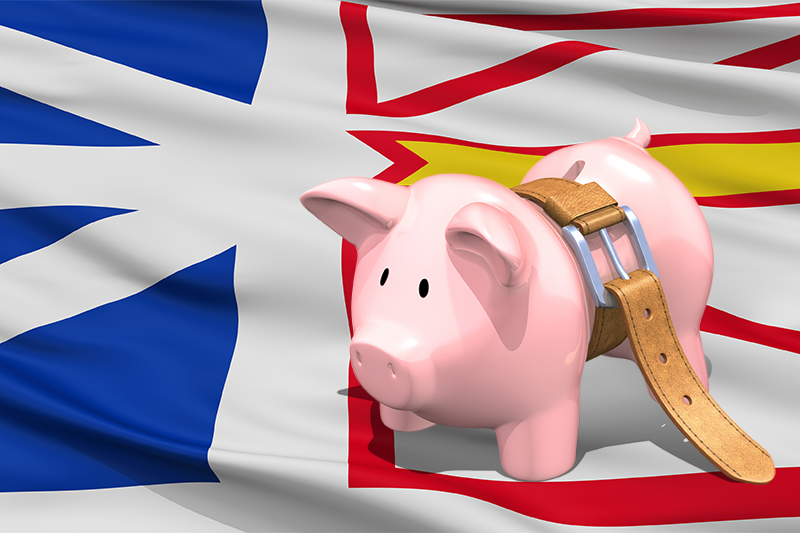Account Login
Don't have an account? Create One

As I write this, the outcome of the Newfoundland and Labrador provincial election is not known. Regardless of whether Dr. Furey is re-elected or Ches Crosbie proves the polls wrong and ascends the throne of premier, neither will have an agenda which can be anything other than painful to implement. I have said before in this column that the Province is in dire financial straits. Covid hasn’t helped (massive understatement). It’s nice that the federal government has deferred the first payment due on Muskrat—but that’s just a deferral of an obligation, not relief from it.
The government’s revenue line is in trouble thanks to declining oil-based royalties; that is not going to self-correct nor can it be remedied through higher taxes. Not just because the provincial population is already taxed to the max, but also because the Province has to maintain a competitive tax jurisdiction compared to the other provinces—there’s no more room on that scale. So, what are the options?
The economy needs to grow so as to drive government revenues. Two things need to change in order for that to happen. First, the population needs to increase. Immigration needs to be aggressively pursued and immigrants need to feel welcome to an extent that they will encourage others from their community to emigrate. This model has been tested, tried and proven elsewhere in the country; it works. Second, the small business/start-up community needs to be supported.
This is not about creating more Verafins (although that would be a fantastic result). Rather, it is about encouraging aspiring entrepreneurs to start a business. The province also needs to be able to attract such folks from other places to come to Newfoundland and Labrador for that purpose.
But these are longer term solutions to the revenue problem—they can’t fix today’s deficits. That’s going to have to come from spending cuts. Cuts so severe they will be painful. Unfortunately, those cuts have to start with health care, simply because that spending envelope is the most significant. We cannot expect to have every single service available everywhere around the province so that people won’t have to travel to St. John’s to receive specialized treatments. The government is already making ridiculous election-driven promises on increased spending in this area. This has to stop. Now.
Though drastic cost cutting is unavoidable, it’s also unreasonable to think a billion dollars can be immediately deleted from health and education services. But while it may be too much, too soon, that’s the order of magnitude made necessary by the size of the problem. So, what can be done?
I suggest that a measurable goal be established and made completely transparent. It needs to identify exactly where those cuts will be made and then commit to a time frame. Say, for example, five years. The debate about where and how those cuts will be made should be a comprehensive public discourse. Make sure the whole population is fully aware of the problem and ensure they “own” the solution. The process needs to really engage the populace: buy full-page ads and broadcast time, talk about it on social media—make the discussion so ubiquitous that it can’t be avoided. And in the process, ensure people understand it’s not about whether extensive spending cuts will happen (that will be a given). The debate is about where those cuts will be made.
How do we get from here to there, with as gentle a reduction of services as possible? Set up a transition fund by borrowing against the incremental proceeds available when the benefits of a revised Churchill Falls agreement begin to flow. This is an area where the federal government could help, in the same way they helped in securing the debt required to finance Muskrat Falls.
And, before I forget, make sure the door is wide open to exploration and production plans for the province’s offshore energy sector. Those who would like to shut down this industry need to understand a barrel of oil produced offshore Newfoundland is much better for the environment than a barrel of oil from Venezuela and many other jurisdictions. The world will wean itself off hydrocarbons, but in the meantime why does it make sense to hand the oil market to foreign interests where environmental regulations are much less restrictive than they are here?
No politician wants to cut. People will boo, not cheer. But that’s what leadership is… making the tough decisions to do what’s necessary. Listen and be empathetic—but get on with it. •
Comment policy
Comments are moderated to ensure thoughtful and respectful conversations. First and last names will appear with each submission; anonymous comments and pseudonyms will not be permitted.
By submitting a comment, you accept that Atlantic Business Magazine has the right to reproduce and publish that comment in whole or in part, in any manner it chooses. Publication of a comment does not constitute endorsement of that comment. We reserve the right to close comments at any time.
Cancel